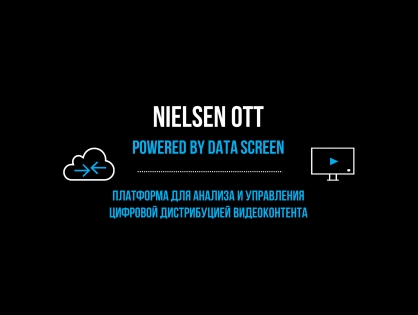 Causes of the decline of traditional media – how hipsters “squeeze” “parents” under “Macarena” and Konstantin Kinchev and join hands to build new media industry.
Causes of the decline of traditional media – how hipsters “squeeze” “parents” under “Macarena” and Konstantin Kinchev and join hands to build new media industry.
Now it is fashionable to say “goodbye TV”, after all, who watches it?
In fact, wide mass of the population around the world is watching TV, although linear TV certainly loses the audience – recently there was news that in United States cable TV operators have lost more than 1.5 million subscribers per quarter.
In Russia, over the last decade, audience of linear TV was sensitively fragmented (it was redistributed between the largest broadcast channels in the direction of smaller broadcast channels, pay-TV channels and digital platforms). At the same time 2017 has become one of the most difficult years for pay TV operators – bases are growing, but very slowly (or sometimes fall) – what is behind all of these changes and how they are related?
In order to understand tectonic changes in any market, it is necessary to look deep into the structure of the consumer base, segment it into homogeneous groups and understand who they are, how they think, what they want and what they dream of.
I am deeply convinced that demographic generational changes are primarily behind the changes in media consumption. Modern terrestrial and pay TV were formed in the era of late 90’s and early 00’s years – the majority of heads of the largest TV channels (Ernst, Dobrodeyev and others) took their “battle stations” at this time. They belong to a generation for which the majority of consumer brands, media companies and political technologists of modern Russia were mainly oriented – generation born from 1955-1965. Explosive growth of fertility in that era is connected, first of all, with the fact that post-war poverty and devastation in the Soviet Union were overcome just in those years and, precisely, this generation became the largest in absolute sizes at that time. Born later, in 1965-1980, “Brezhnev” generation is much smaller due to demographic waves associated with huge losses in the population during the revolution, the civil war and the great Patriotic War. Generation of post-war wave was in the most economically active age 30-40 years at the time of collapse of the Soviet Union: they were members of Komsomol and became bankers and bandits, and they came out to demonstrate for freedom and publicity. They also led Vladimir Putin to the power, disappointed in the anarchical and ruthless “democracy “of 90’s and eventually led the country to what they subconsciously call “home” – modern and bizarre reincarnation of Soviet power and society.
By culture they are people of Soviet plan – which is why they always thought that television (read – content) should be free (or rather they couldn’t even imagine that you have to pay for TV) and the idea of pay TV for a significant monthly fee (which is actively developing in the rest of the world since late 60’s) could only settle down to 2000, and only with one of the lowest ARPU in the world. In addition, representatives of this generation of “parents” are conservative in terms of technology – for them Internet and modern technologies continue to be something new and unknown. For them, small fee for television or the need to watch advertising on TV is a kind of small tribute “for access”, which they better would not pay at all, but in general are willing to tolerate, receiving whole universe of content in return. Here we can see rare for the world`s practice skew of our media into advertising model – a few dozen broadcast channels, covering a substantial part of the country, with an expensive and premiere content and hundreds of high-quality “conditional fee” channels. In digital environment, the skew in the direction of advertising is no less – most of video platforms made the initial bet on the advertising model, although it is already (due to demographic reasons) not dominant (digital media and in particular video platforms are still used by younger people who are more willing to pay for transactions and subscriptions).
Today, this generation is gradually retiring and ceases to be economically active. “Millenniums” came to take their place – children of “parents” who were born from 1980-1990; this generation is significantly different because they grew up on the sunset of Soviet power and has rather figurative representation of the “Soviet”: from teenage years they began to use Internet and were the first “digital” generation. For them the devastation of 90s has little to do with romantic images that are sometimes so dear to their parents, they probably remember that era as a time of teenage protest and anarchist rebellion. Who from that generation does not remember skinheads and other representatives of subcultures running on streets of the cities, first bottle of “Nine” with Dibazol or school discos where “Makarena”, 2pac and Konstantin Kinchev were existing in a crazy space? It is not surprising that these people today have become “hipsters” – masters of cosmopolitan comfort, “progress”, “civilization”, pseudo intellectualism, “craft” – this is an attempt to escape in a private cozy world from the most uncomfortable 90s, which gave birth to them. Just like their parents who run away to our new “Soviet Union” from romantic and “free” 80s and action-Packed 90s. This by the way is one of the root reasons why many media brands from the late 90s (like MTV/ Muz-TV) was unable to maintain popularity in new era – they are reminding “hipsters” about who they really are and absolutely irrelevant to the new generation of YouTube.
The most interesting thing is that in absolute numbers generation of Millennials is much larger than their parents and the entire economy is forced to reorient itself to them. Today, these are middle – aged people (25-40), who often already have families, children – they take a mortgage, buy cars and try to build their lives on the patterns of what they see in modern and westernized media. They still have a subconscious adoration for all “Western”, of course not like their parents, but their national consciousness gradually wakes up. For them, the world of broadcast channels, set-top boxes with wires contrast brightly and negatively in relation to the ease of ordering a taxi or food at touch of a button, ability to watch any video at any time. They are no longer so negative about paying for content – because for them advertising is not a necessary sacrifice or object of admiration (note how less popular all sorts of “advertising festivals” have become in recent years), but simply an attempt to impose something on them or fool them. If you give this generation demanded content at low enough price in a convenient way – mostly they will agree to pay because their time and life much more expensive than washing powder or chips.
So what awaits us?
Era of polarization, when the largest Telecom operators and media holdings (traditional) will rot under the weight of their structures and bureaucracy, periodically trying to imitate the activities (launch of new “search engines”, “messengers” and “showcases” just this case) of the real engines of the era – technology companies. “Hipsters”, and then their children (who will also be more and more actively involved in media consumption every year) will go to the “new media” – from personal small blogs to large video platforms. Some small number of old (but smart) players may be able to migrate to new era, but in general they are waiting for the descent down a spiral.
The audience and subscribers of broadcasting channels and telecoms, every year, will remain pensioners and the poorest segments of the population, which in the end over the next decade should significantly reduce the income of these sectors and reduce their ability to produce and purchase content. Their place will be taken by media technology companies – yesterday’s IT specialists (shamefully removing pirate flags from the walls) holding hands with young producers (for whom the word “Internet” does not exist in the plural) will open the door for us into very new wonderful world.
As Trump says – Drain the swamp!
P.S. Yes, the advertising market will change very much – finally, the content and advertising will merge, and sincerity will not be a disadvantage, but a real value.
AUTHOR: ANTON SAVINOV





Отправить ответ